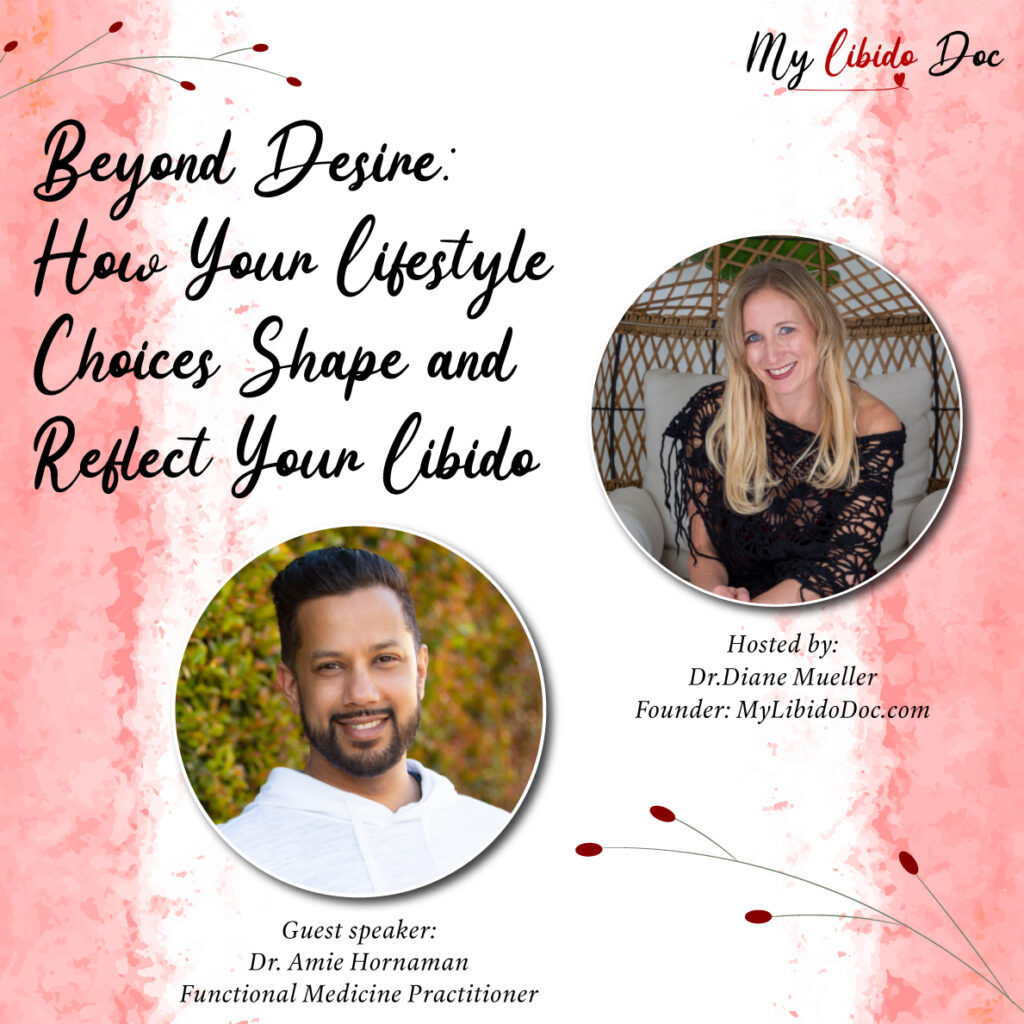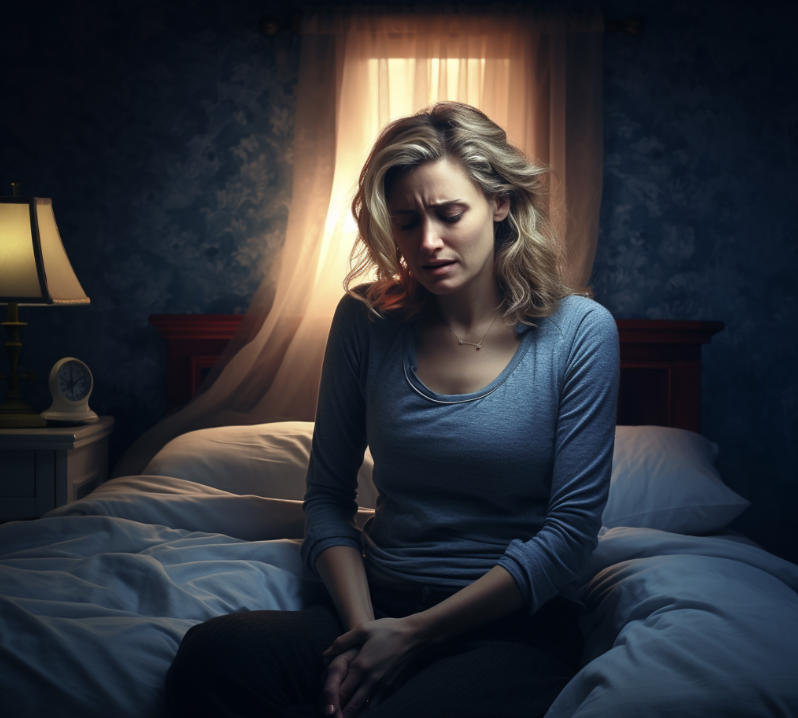Table of Contents
Ever questioned what happened to your sex drive? You’re not alone! Understanding what is low libido, or a reduced desire for sexual activity, is super common and affects both men and women. Your sexual interest can go up and down ’cause of things like hormones, stress, and getting older. But when a low sex drive causes stress or relationship probs, it’s time to dive deeper. In this article, we’ll unravel the mystery of low libido, shining a light on what causes it and how to treat it. Whether it’s a medical thing, lifestyle factor, or just a phase of life, understanding low libido is step one to reclaiming your sexual wellness.
Key Takeaways
• Low libido can hit men and women due to hormones, stress, aging, medical issues, meds, and lifestyle.
• Symptoms include a lack of interest in sex, infrequent sexual thoughts/fantasies, and feeling unsatisfied or uncomfortable.
• For men, stress, age, hormones, medical conditions, and certain drugs can tank libido. Women may struggle due to hormones, stress, aging, menstrual cycle, after having a baby, and menopause.
• Heart disease, diabetes, thyroid probs, meds, alcohol and drugs can all contribute. Hormonal changes postpartum can also reduce sex drive for new moms.
• A healthy lifestyle with exercise, good food, sleep, and managing stress/anxiety can boost sex drive.
• Coping strategies include lifestyle changes, talking openly with your partner, therapy, counseling, and stress relief techniques.
What Is Low Libido?
Low libido is another term for a low sex drive. The mayo clinic reports that there is no number that classically defines the diagnosis of “low libido”. Our perspective on this is that what determines whether your libido is low or is not based upon anything such as number of days you go in between intimate desires.
Libido is different for everyone. If you’re feeling a reduced or non-existent desire to get it on, that’s low libido. While it’s normal for sexual desire to go up and down based on personal and cultural things, a persistent low libido could mean underlying issues.
if you are reading this, it may very well be that you are trying to determine if you (or someone in your life) are experiencing a low libido. If you are questioning if yours is too low, ask yourself these questions:
- Do you think you could benefit in your personal life from a higher libido?
- Do you think that you could benefit in your interpersonal life from a higher libido?
- Was there a time in your life when you had a higher libido and felt positive benefits from it?
- What do you think a higher libido would create in your life that you do not have now?
- Would you benefit (and how specifically) from having an increased libido?
There is research that uses the female sexual function index scoring system which is a survey that scores women in 6 areas including arousal, desire, lubrication, orgasm, satisfaction, and pain. While this survey is subjective, it helps determine the gap between where you are with your libido and where you want to be.
Take Our Libido Quiz to get your score to get clarity
Signs You Might Have Low Libido
No interest in any sexual activity, even solo • Rarely or never have sexual thoughts/fantasies • Feel unsatisfied or uncomfortable due to lack of sexual thoughts/activity
Remember, these symptoms should persist and bug you for it to be considered low libido. Everyone’s sexual needs are unique, so focus on your own sexual health. If a low sex drive is causing anxiety or hurting your relationships, it’s smart to get professional advice.
What Can Cause Low Libido?
- Constantly tired, stressed, or anxious? That might be why your sex drive is MIA. Non-stop stress, anxiety, and exhaustion can seriously kill your libido and impact your happiness and sex life.
- Hormonal changes, especially around menopause, play a huge role. Drops in estrogen during menopause can thin and dry out vaginal tissue, making sex uncomfortable or painful and tanking desire.
- Just like other health stuff, aging affects libido. Sexual desire can change as you get older, and it typically goes down with age.
- Heavy drinking and drug use can wreck your sex drive. Chronic heavy drinking can lower testosterone, causing a libido dip.
- Many medical conditions, even ones you take meds for, can impact libido. Things like heart disease, diabetes, or thyroid issues can contribute to low sex drive. Talk to your doctor if decreased libido is an issue with medical conditions.
- New moms often see their sex drive drop after having a baby. Hormones, body image changes, exhaustion, and taking care of an infant all play a part. Open convos with your partner can help navigate this.
Low Libido Looks Different for Men vs. Women
The causes and effects of low sex drive can vary by gender. Men and women may have different triggers, responses, and coping methods.
Low Sex Drive in Men
For men, stress, age and hormones often trigger low libido. Certain medical conditions or med/drug use can also tank sexual desire. Antidepressants, antipsychotics, and even OTC drugs like Tagamet can decrease sex drive over time.
Some other meds like anticonvulsants, beta-blockers, and benzos might also reduce libido. Men with low sex drive using medications should consult the doctor. Fixing the issue may involve trying different meds, adjusting doses, or considering testosterone replacement therapy.
Testosterone therapy uses synthetic hormones to restore T levels. It requires regular checkups and bloodwork to make sure it’s working and adjust as needed. If drug/alcohol use is the culprit, you and your doc should look into alternatives.
Low Libido in Women
Women can also have lower sexual desire due to hormones, stress, aging. But the triggers and effects may differ from men. A woman’s sex drive can vary with her menstrual cycle thanks to hormones. Postpartum and menopause are also key times when libido may change a lot.
Lifestyle also matters a ton. Low self-esteem, relationship issues, isolation or stress can reduce quality of life and sex drive. If you’re a woman whose desire for sex drops a lot or causes anxiety, definitely reach out to a doctor for help understanding and addressing it.
The bottom line: Open communication, looking at your lifestyle, and getting the right help can be super useful for tackling low libido, no matter your gender. Low libido is common and has many causes, but with the right approach it’s solvable
Low Libido Options
Dealing with low sex drive can be frustrating or disappointing. Here’s key info on professional diagnosis and treatment options to help manage it
Hormone Treatment Options
Some opt for hormone meds like estrogen or testosterone. Estrogen comes in pills, patches, sprays, gels and do not always improve sexual arousal issues. Testosterone is key for female sexual function and is sometimes prescribed to boost lagging libido. For these consult your doctor for your options.
Testosterone replacement therapy is another option. It restores T levels using synthetic testosterone in topical gels, creams, patches, pills, nasal gels, injections, or pellets. Regular checkups and bloodwork are needed to ensure it’s working.
Lifestyle Changes
In addition to medical treatments, lifestyle changes can have a big positive impact on sex drive. High stress, poor diet, lack of exercise, and not enough sleep can all contribute. Regular exercise, a healthy diet, good sleep, and managing stress/anxiety can be essential for improving libido. Identifying triggers and changing lifestyle habits can significantly boost libido, overall health, and relationship wellness.
A low sex drive is something to solve for and good help is out there. Check out our Libido Masterclass to help get your mojo back!
Healthy Lifestyle Changes to Boost Libido
Your lifestyle directly impacts your libido. To give it a boost, try these healthy changes:
- Regular Exercise: Do moderate daily exercise, like a brisk 30-min walk or shooting hoops with friends. Regular activity boosts mood and helps with weight loss, both of which can improve libido.
- Eat Healthy: Stick to a diet that promotes overall health and hormone production. Healthy food choices can work wonders for libido.
- Maintain a Healthy Weight: If you’re overweight or obese, losing just 5-10% of your weight can improve many body functions, including those key for a healthy libido.
- Get Enough Sleep: Make sure you’re getting enough Zzz’s. Lack of sleep or disturbed sleep can mess with your hormones and hurt libido.
These factors play a strong role in libido levels. Address them early to pave the way for better libido and a satisfying sex life.
Support and Coping Strategies
When navigating low libido, support networks and coping mechanisms are your best friends. Here are some ways to manage:
- Communicate Openly: Discuss concerns with your partner. Honest, open communication about low libido can relieve stress and anxiety and allow your partner to support you.
- Try Therapy: Don’t be afraid to seek professional mental health support. Sex therapy, cognitive-behavioral therapy (CBT), or couples counseling can help you work through stress, anxiety, or relationship issues impacting libido.
- Practice Relaxation Techniques: Do stress management techniques like mindfulness, yoga, or deep breathing. These can help you relax, improve mood, and boost desire for sexual activity.
- Get Some Help: If meds are causing libido loss, ask your doc about alternatives or adjusting your treatment plan.
By making these changes and seeking support, you can better manage libido and relationship challenges.
The Bottom Line
The bottom line is if you feel like having more of a libido would create positive thing in your life, then yes, it is likely that you have a lower libido than you could. Healthy libido function can happen at any age.
So, take our Libido Quiz to see if you have a low libido as many factors cause our libido to fall, and they compound as we age. Minor physical or emotional stressors add up over time and this leads to a fall in libido that some people say is natural with the healing process.
While it is COMMON as we age, it is not exactly natural. You can read more about Low Libido In Women
At My Libido Doc we help women who want to want it. Sign up for our masterclass to learn specifics on root causes of low libido (beyond just hormones) and specific things you can do to improve yours!





